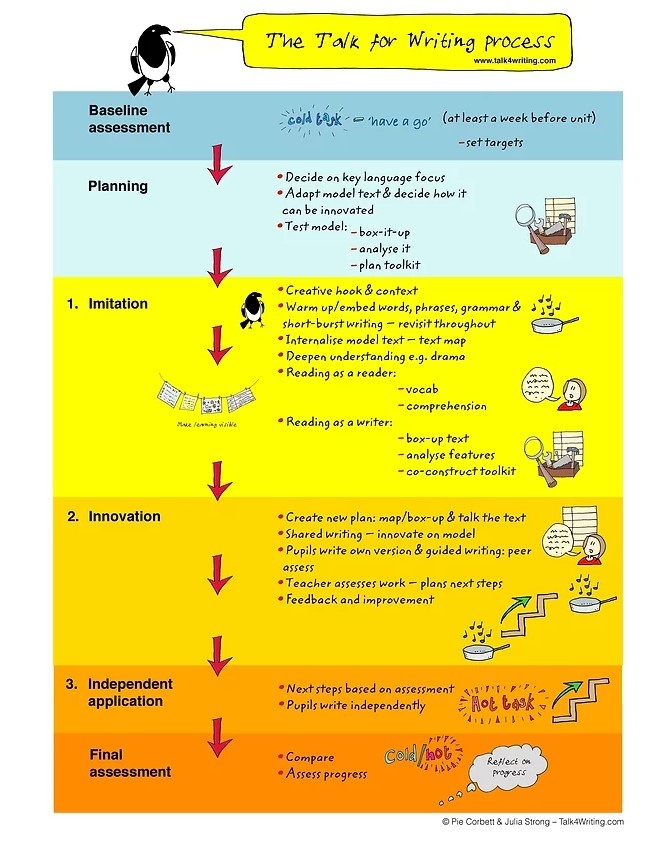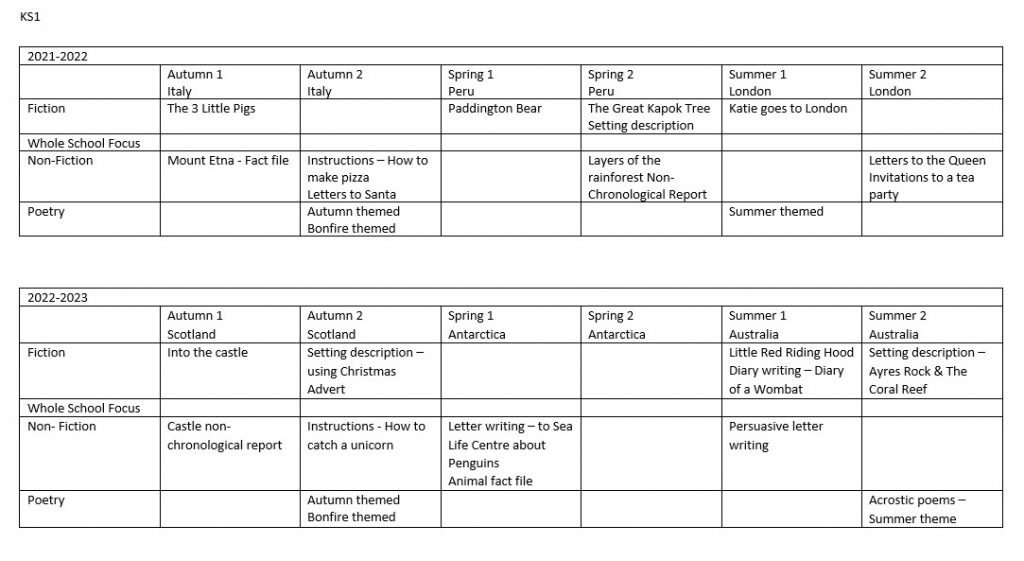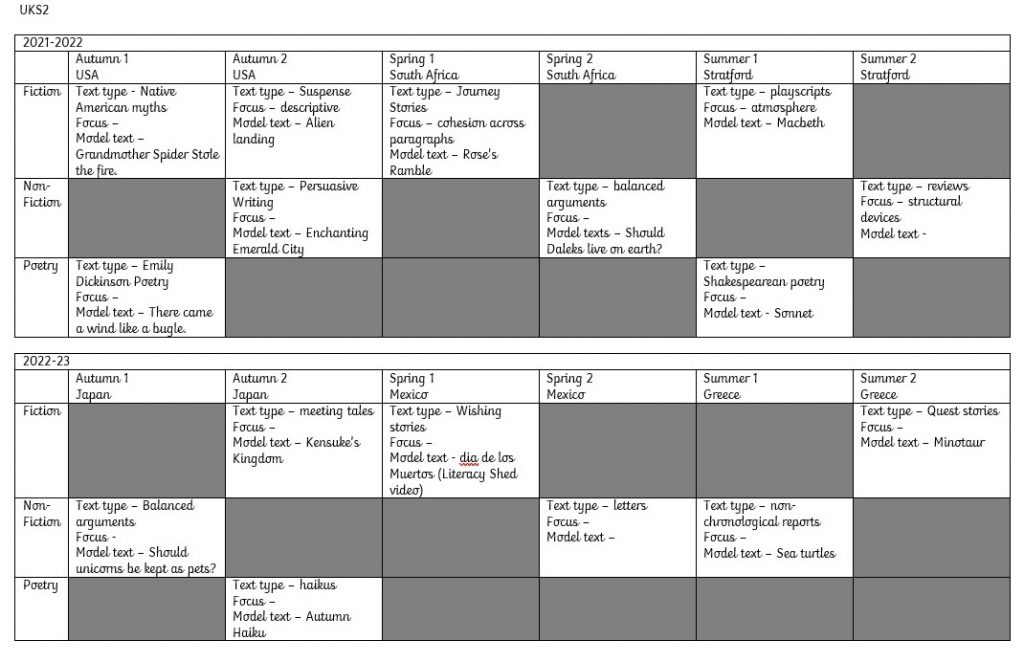
Intent
At Huncote we believe all pupils should be able to confidently and enthusiastically communicate their knowledge and ideas through their writing.
We want pupils to:
- Apply their phonics skills
- Have a purpose for writing
- Write a range of genres
- Acquire a wide vocabulary
- Have a solid understanding of grammar
- Spell new words by effectively applying spelling patterns
- Take pride in their presentation
Implementation
Classroom organisation
As a school we use the Talk 4 Writing Approach. Lessons are taught as a whole class and children are exposed to modelled texts appropriate to their year group expectations and National Curriculum.
Story maps are displayed and are adapted throughout the unit. Whilst key grammar skills are displayed alongside vocabulary for children to ‘magpie’ during the writing process. The vocabulary from whole class reading sessions may also be integrated within the children’s writing.
In years 1-6 (Year 1 from spring term) children will produce a Cold Write which will show the required teaching steps before planning the unit of work. The teacher’s planning should then reflect the aspects required from the cold write alongside teaching other national curriculum skills.
EYFS
In EYFS, the children begin to learn the actions to stories that they listen to, by doing this they then internalise the story. They are able to follow a story map and will often begin to create their own story maps. They then have the opportunity to apply their phonics knowledge when innovating the story.
Years 1 and 2
Children begin the ‘Talk for Writing’ process by internalising a text. This is done in a range of ways including text maps, inventing actions for parts of the text and drama. The children learn the text by heart. They are able to identify key features of the text, sometimes independently and other times as a group or class. A toolkit is then created and displayed which shows the ‘key’ features of the given text. Alongside this, skills are taught for example punctuation or features of the genre. The use of vocabulary within the text is also explored.
Following on from this, the children then have to imitate the text they have learnt. This is modelled by the teacher. They may make simple changes to the original text to alter it slightly. Once they have internalised the reworked text, they then have to ‘box up’. This simply helps them to organise their ideas and acts as a plan for their writing towards the end of the week.
The final part of the Talk for Writing process is ‘innovation’. Over the previous weeks the children will have been equipped with the skills required for inventing their own text from beginning to end. They will come up with their own ideas and be able to box them up. They will then be able to produce an independent piece of writing (hot write) showcasing their text. Children will then have the opportunity to edit their writing at the end of the process.
Key Stage Two
Key Stage 2 children follow a very similar approach although it is more advanced. It follows the same internalise, imitate, and innovate structure as is used in KS1. Children, again, must identify key features of the text they are learning and think about the key ingredients they need to include in their own work. Over the course of the unit, children are encouraged to share ideas for others to ‘magpie’. This means they can use the good ideas from their peers in their own writing. Grammar and spelling skills are taught alongside the model text with opportunities to apply the strategies throughout the unit.
Year groups are encouraged to expose children to a range of texts and genres alongside story types. Each year group should also experience ‘short burst’ writing to rehearse skills.

Intended Impact
- Pupils will enjoy writing across the genres
- Pupils of all abilities will succeed in all English lessons because work will be appropriately scaffolded
- Pupils will apply wide vocabulary within their writing
- Pupils will begin to have a good knowledge of how to adapt their writing based on the purpose
- Pupils will leave primary school being able to effectively apply spelling rules and patterns they have been taught
- Pupils will take pride in their work
- The % of pupils at ARE within each year group will be broadly in line with national averages
- The % of pupils working at greater depth within each year group will increase
Writing Overviews




Writing Progression
| Title | Size | Download |
|---|---|---|
| writing_progression Yrs 1-6 | 78.09 KB | DownloadPreview |
| writing_in_eyfs | 62.83 KB | DownloadPreview |